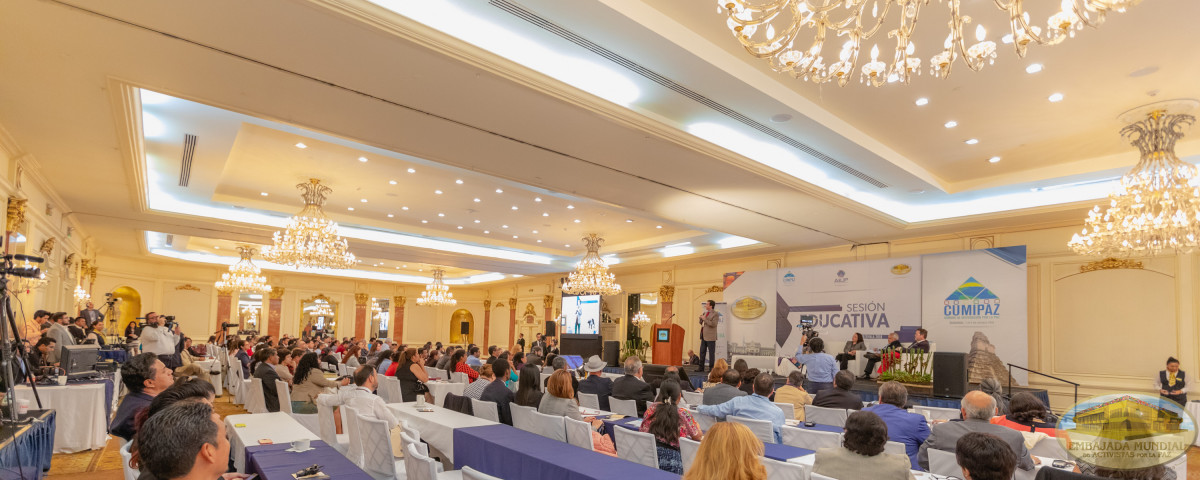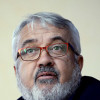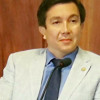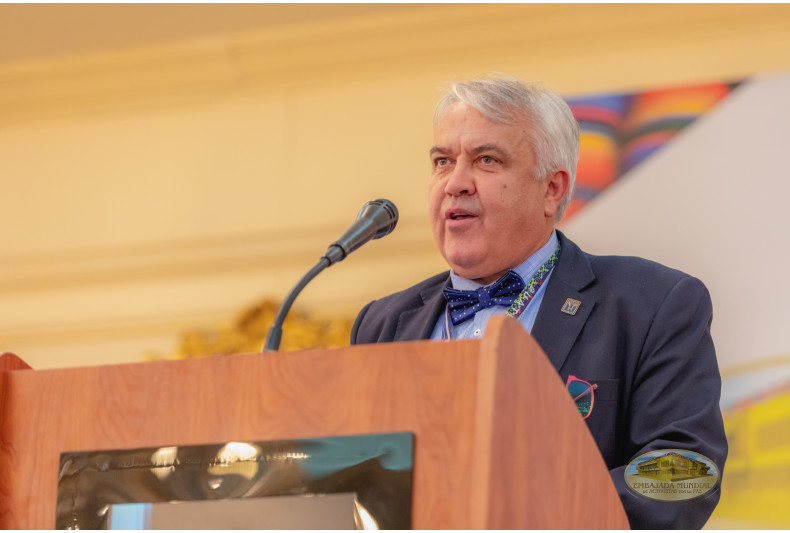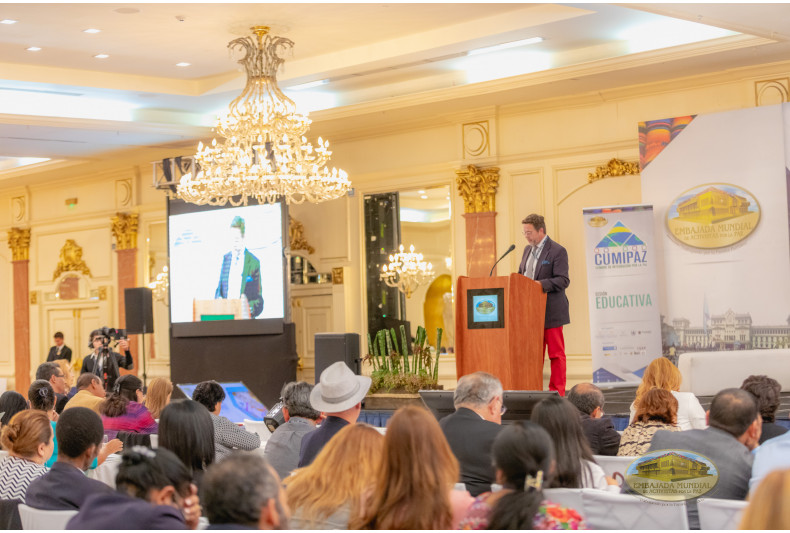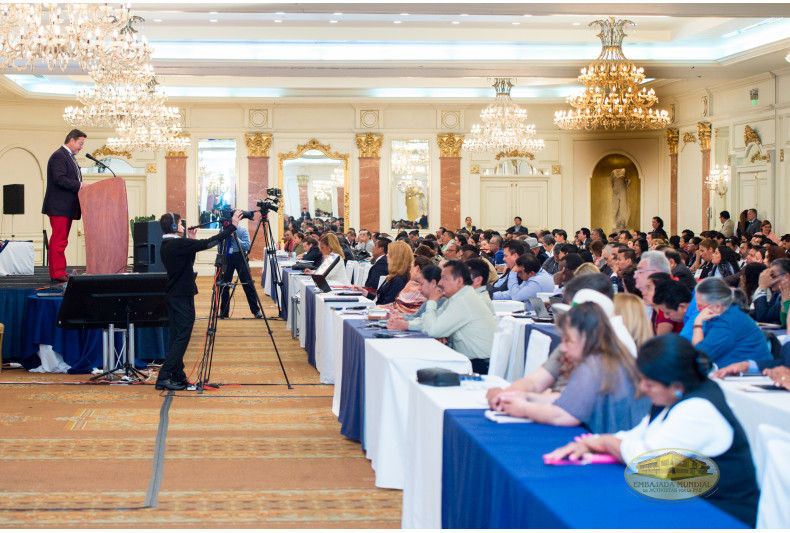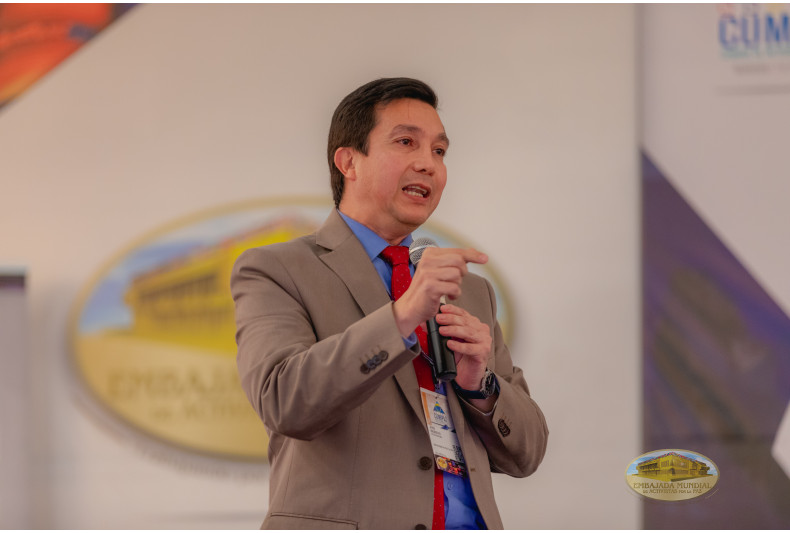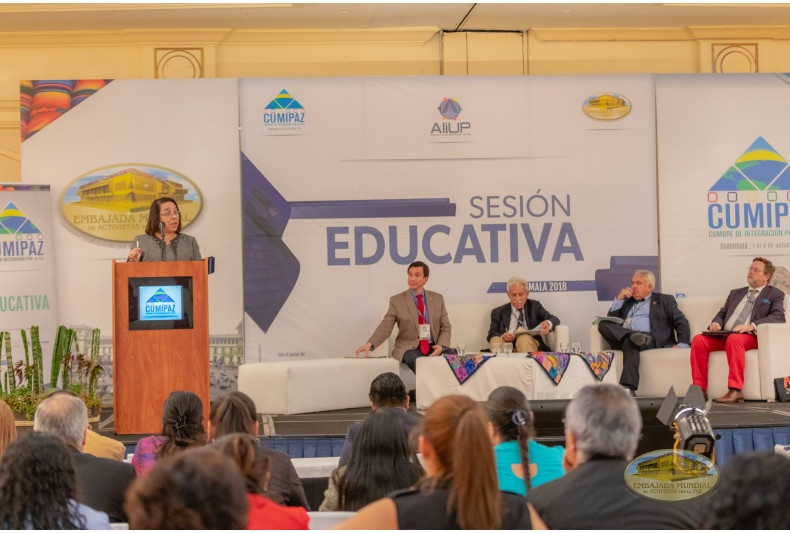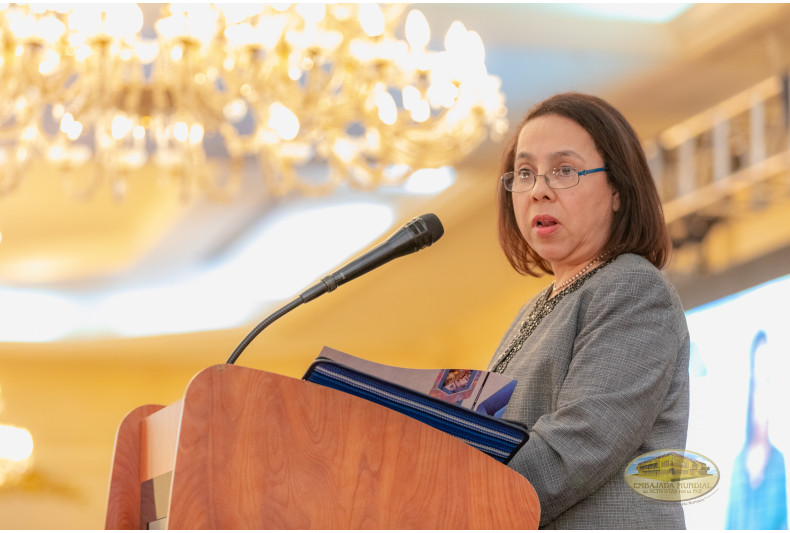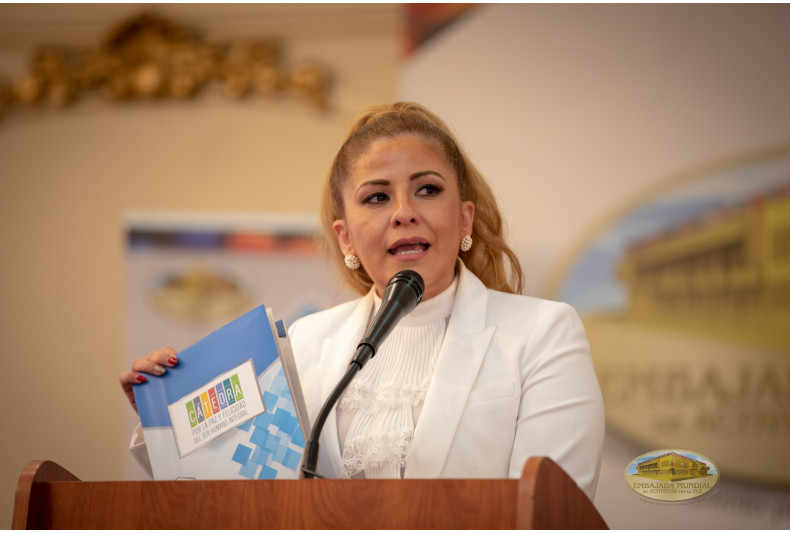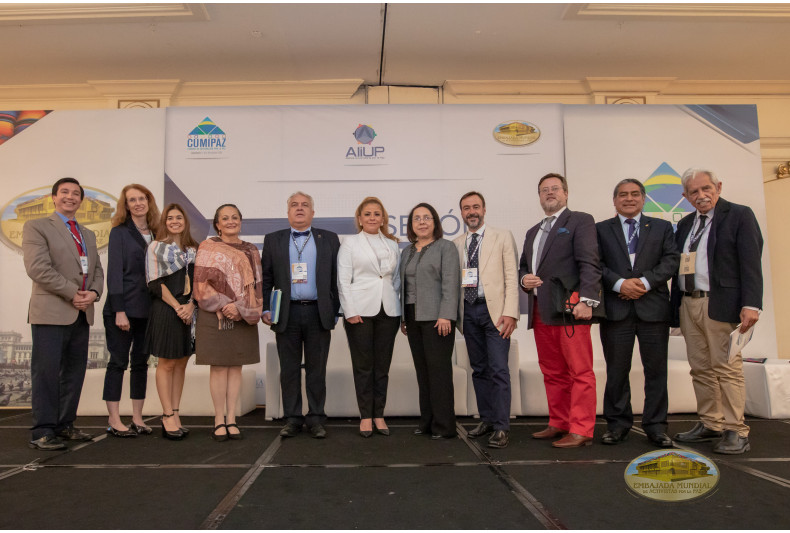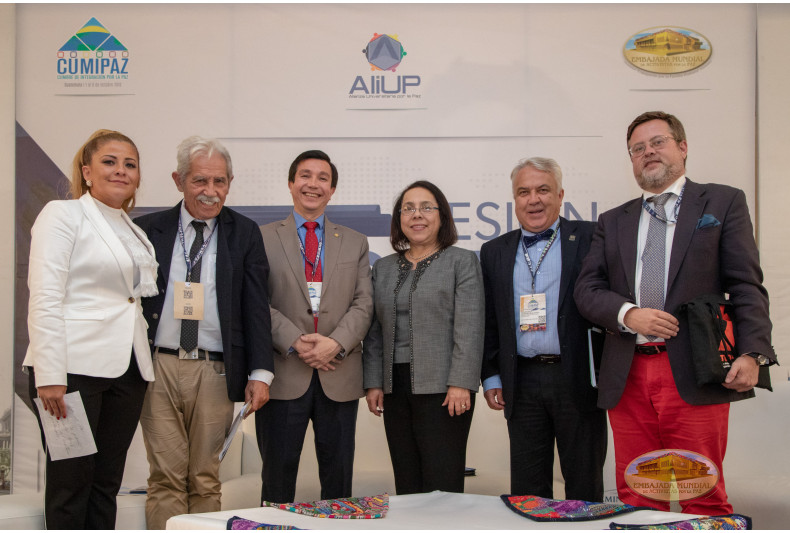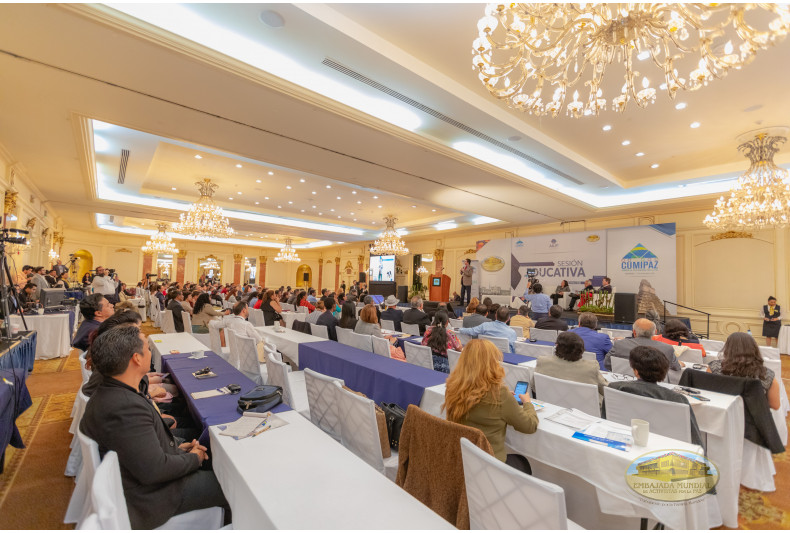1st Panel of experts; The educational system must be oriented towards peace
See GalleryMeir Steinhart, a leadership professional at the International Institute for Leadership in Histadrut, Israel, participated as a moderator in the Panel of Experts on Education: "Approaches and perspectives of an educational system oriented towards the peace and happiness of the human being", held in the Session Report of the Integration for Peace Summit, CUMIPAZ 2018.
This international space for dialogue and integration, brought together personalities from the different fields in which human beings interact, to study, debate and formulate initiatives, projects and viable actions, aimed at strengthening integral peace.
Francisco Jiménez Bautista from the Peace and Conflict Institute, University of Granada, Spain attended the academics meeting, who developed the theme "Approaches and perspectives of an educational system aimed at the peace and happiness of the human being".
Jiménez, expressed in his speech that peace implies disciplinary, interdisciplinary and transdisciplinary elements when it comes to building a scientific approach.
Likewise, he made reference to neutral peace, which blocks the forms of cultural and symbolic violence; which legitimize direct violence and structural violence. In this regard, he indicated:
"We have to change towards a new peaceful paradigm to attain a peace world concept, it is where we really should work."
Jiménez, said that the professor must see the techniques of non-violence to be able to work in the classroom, to establish spaces where peace is built and people become aware of the existing problems.
Peace and the formation of transformational leaders
"The role of incidental social actors in the educational process for the implementation of an education for peace and the formation of transformational leaders" was the theme presented by Santiago Castellá, Professor of International Law and International Relations at the Rovira University ! Virgili, and director of the Master in International Criminal Justice of Spain.
Castellá reflected on the radical changes that the world is experiencing, and the need to recover an integral education in values that helps the construction of the human being.
For Castellá, fear is the ghost that travels the world:
"Fear as the engine to take us back takes advantage of the progressive ethical degradation and dehumanization of societies, of the dissolution of the dignity of the person and of inflicting terror on lose the false assurances that the consumerist model gives us," he said.
He also mentioned that through education, transformational leaders can be formed who work for the construction of a freer world, with opportunities and fraternally united with the inhabitants of planet Earth.
Quality vs. happiness
José Inocente Moreno Cámbara, Vice Minister of Design and Verification of Educational Quality of the Ministry of Education of Guatemala, in his presentation "Indicators of an education for life: quality vs. happiness", said:
"Education continues to be the most robust, fastest and most accurate vehicle for sustainable development."
For Moreno Cámbara, if the goals of quality education are met, students will achieve happiness, because the success of a society lies in the educational system. "It is my responsibility that through education Latin America every time we will have a better," he said.
An education for life
"Innovative educational trends: Paradigms of an education for life" was the theme that developed, Margarita M. Arellano, Associate Vice President and Dean of Students of the University of Texas, United States
In her speech, she mentioned that in the new history of humanity education is a power, for this reason it is important to include students in the educational process, as well as parents, to teach them how to guide their children.
"It is very important that we understand that in the new history of humanity, education allows us to have a favorable economic position in society," she said.
Arellano sees that it is necessary to incorporate teachers into the process, because at the present-day they do not receive the correct time and a good remuneration, according to the statistics 30% or less of the students do not want to train as educators.
To end her presentation, she said that education should be dynamic and relevant, because it is like language, everything changes including students. "Let us not import education models, let us make our own models," she concluded.
Closing of the Educational Session
The closure of this segment was in charge of the general director of the Global Embassy of Activists for Peace (GEAP), who said "Today we learned that Peace is truly a path that demands and requires from each one of us effort, will, commitment, voluntary work and sacrifice."
Lara said that at the Summit there are 400 volunteers whom are working in different areas, they traveled from different countries of Latin America, the United States and Spain.
Each of us is here because we understand that peace is not a utopia, we understand that it can be achieved and can be attained only and if simply we are all aware that we can transform our society, we can transform the individual, the human being and that is through education," she emphasized.
Lara, concluded with the reading of a proposal by the executive president of the GEAP, William Soto who expresses:
"Peace is defined as the integral state of balance where the human being is in harmony with himself in a full coexistence and respect with society and with Mother Earth, from this perspective the inner peace of the human being, peace with its resembling, with society and among nations is not a utopia, an emotional state or the simple absence of problems, conflicts or wars, it is a way of life that is based on the pillars of respect, for human dignity and fundamental rights of individuals, of peoples and of Mother Earth, of justice and the practice of universal principles and values ".
As a result of this session the Institute of Interdisciplinary Studies Rafael Ayau (IERA) of Guatemala, signed an agreement with the International Alliance of Universities for Peace (ALIUP), the document was signed by the director of this house of studies Ana Maria Ortega. In addition, a total of 18 signatures of professors adhesion were obtained.
